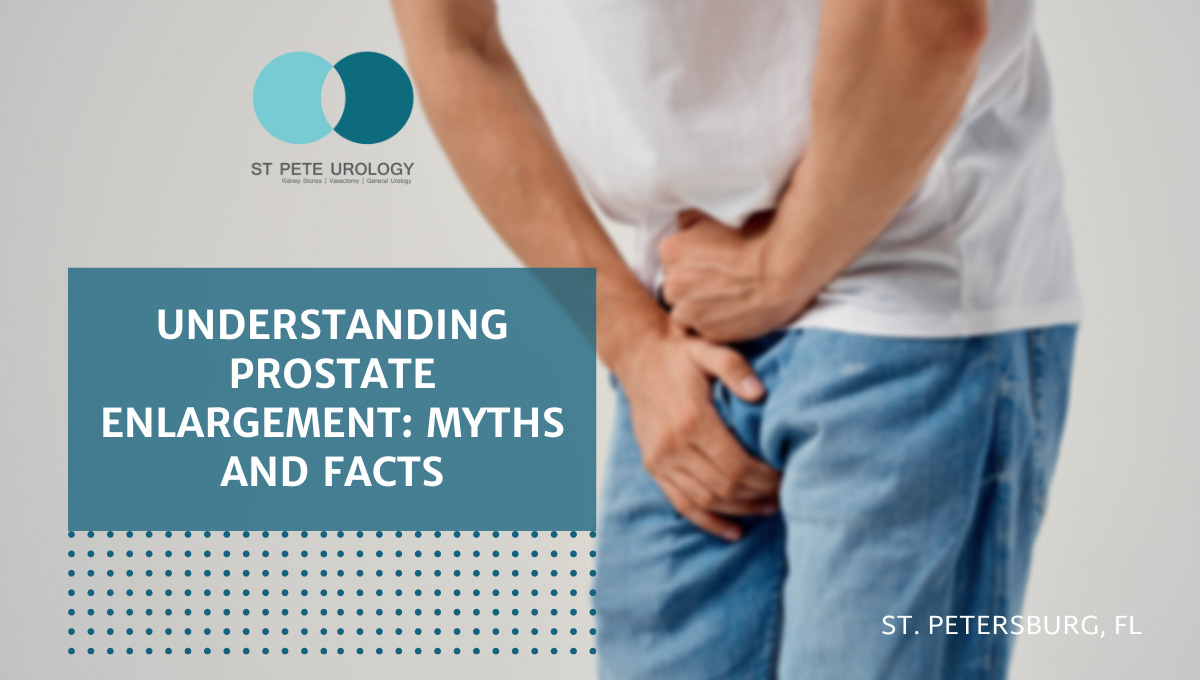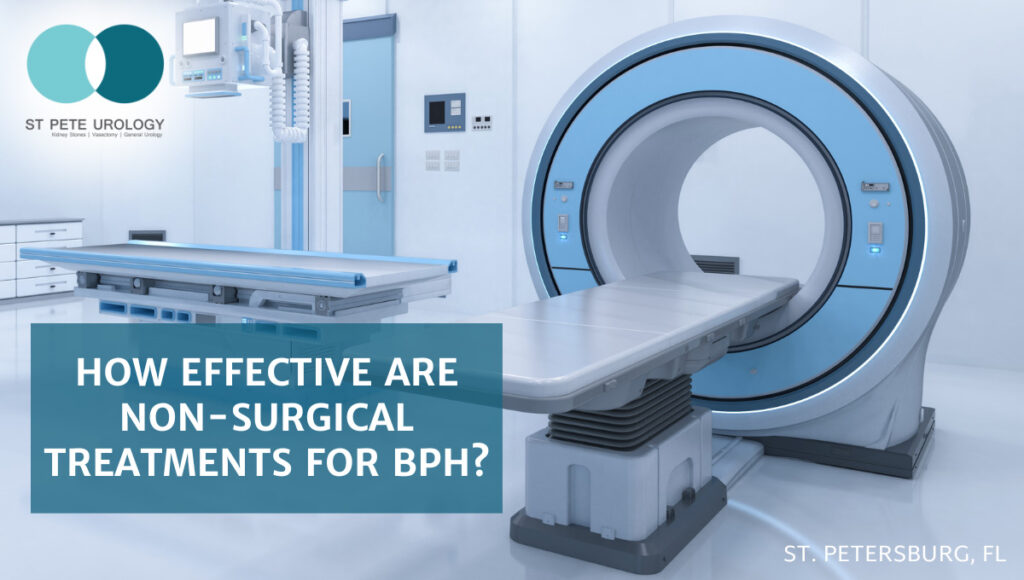3 Key Takeaways:
- Prostate enlargement is not necessarily age-related and does not always lead to cancer.
- Diagnosing and treating an enlarged prostate can involve physical exams, urine tests, imaging studies, medications, minimally invasive procedures, or surgical interventions.
- Good lifestyle habits such as regular exercise, maintaining a healthy weight, and moderating the intake of alcohol and caffeine can promote prostate health and potentially prevent enlargement.


What Is Prostate Enlargement?
Prostate enlargement, often referred to as BPH or benign prostatic hyperplasia, is a medical condition affecting the prostate gland — a crucial part of the male reproductive system. It involves the swelling of the prostate, which can interrupt the smooth flow of urine from the bladder. Various factors can contribute to enlarged prostate, including age, hormonal changes and genetics.
Myths About Prostate Enlargement
Now let’s tackle some prevalent myths around prostate enlargement. One widespread misconception is that only older men experience prostate enlargement. However, while it’s true that the risk increases with age, younger men are not necessarily immune. Men in their 40s and 50s can also develop BPH, especially if there’s a family history of this condition.
Another prevalent myth is the equating of prostate enlargement to cancer. While it’s true that prostate enlargement and cancer both involve a growth in the prostate, they are distinct conditions. BPH is benign and does not spread to other parts of the body or evolve into cancer.
Lastly, the belief that prostate enlargement cannot be prevented is misleading. While certain risk factors like age and family history are beyond our control, maintaining a healthy lifestyle can reduce the chances of developing BPH.
Facts About Prostate Enlargement
Moving on to the factual side of things, prostate enlargement is indeed a common condition, affecting nearly half of all men between 51 and 60 and up to 90% of men over 80. The most common cause is BPH, which refers to the non-cancerous increase in the size of the prostate. Symptoms typically include frequent urination, difficulty starting or stopping urine flow, and weak urine flow.
Diagnosing And Treating Prostate Enlargement
When it comes to diagnosing and treating an enlarged prostate, various methods are employed. These include physical exams, urine tests, and imaging studies. Treatment options range from medications to control symptoms, minimally invasive procedures to reduce the size of the prostate, and in severe cases, surgical interventions.
This is where experts like those at St Pete Urology, in St. Petersburg, FL, shine. With their experienced team of Urologists, they offer personalized treatment plans to manage your symptoms and improve your quality of life.
Lifestyle Changes And Prevention
Apart from medical treatments, lifestyle changes can also make an enormous difference. Good habits such as regular exercise, maintaining a healthy weight, and moderating the intake of alcohol and caffeine can promote prostate health and potentially prevent enlargement.
In conclusion, enriching your understanding of prostate enlargement means debunking the myths and arming yourself with the facts. This crucial knowledge can directly impact your health and wellness or that of a loved one. By offering this guide, we at St Pete Urology wish to foster this important conversation. With expertise and compassion at the core of what we do, we are committed to serving the community of St. Petersburg, FL, with the highest standards of Urologic care.
References:
- “Common myths and misconceptions about enlarged prostate that ….” 6 Sep. 2019, https://www.urolift.com/blog/enlarged_prostate_myths.
- “10 Facts About BPH That May Surprise You.” 8 Sep. 2022, https://compurocare.com/10-facts-about-bph-that-may-surprise-you/.
- “Enlarged Prostate (BPH) – Symptoms and Causes – Penn Medicine.” https://www.pennmedicine.org/for-patients-and-visitors/patient-information/conditions-treated-a-to-z/enlarged-prostate.




